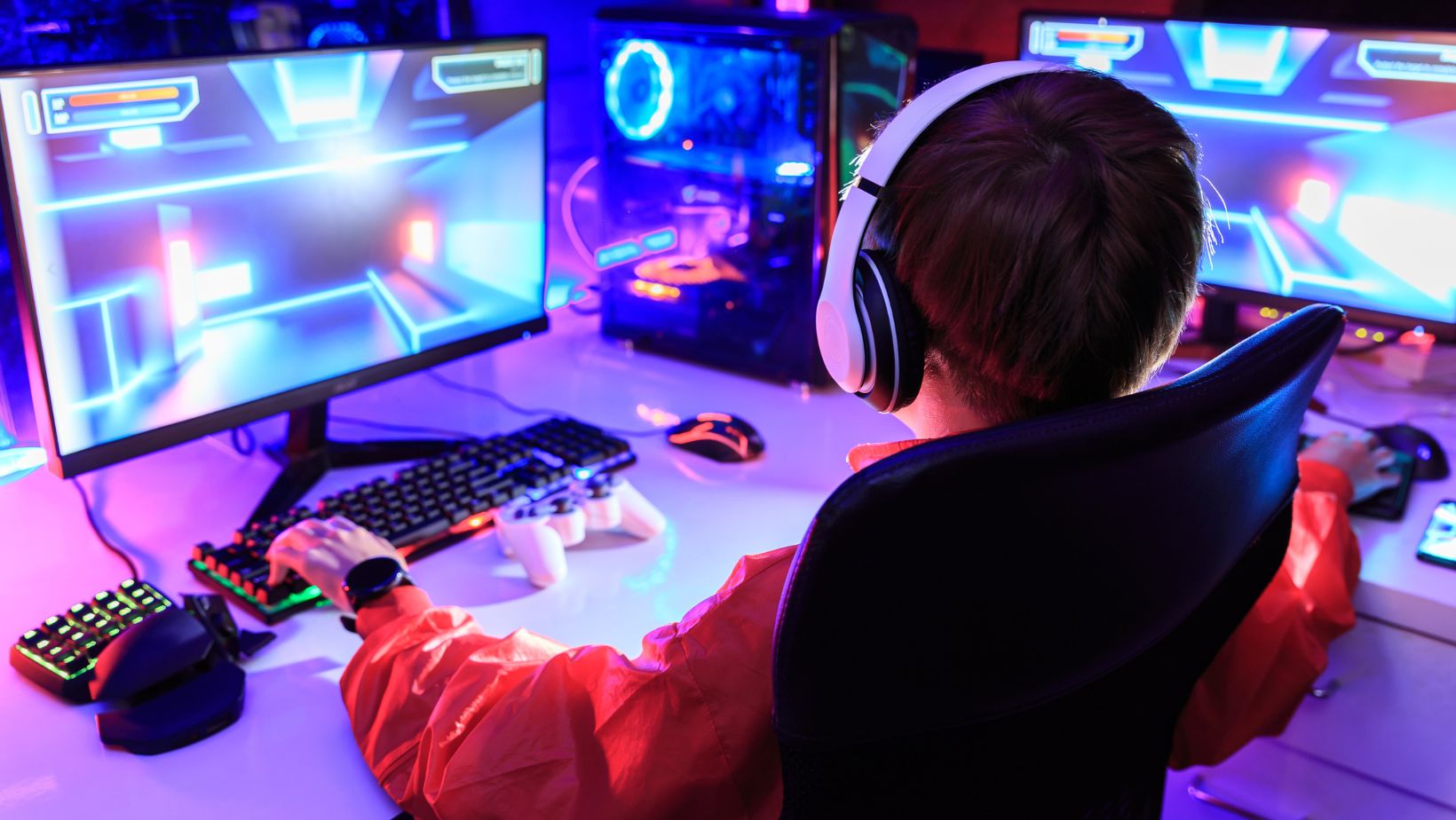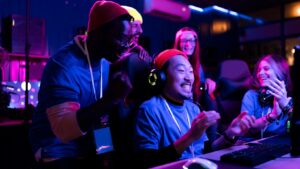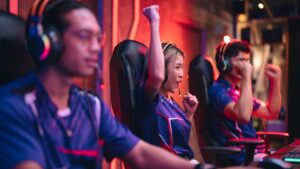 As esports continues to surge in popularity, the demand for effective training methods has never been higher. Gamers at all levels are recognizing that raw talent alone won’t cut it in this competitive landscape. To excel, players need structured training regimens that enhance their skills, strategies, and mental resilience.
As esports continues to surge in popularity, the demand for effective training methods has never been higher. Gamers at all levels are recognizing that raw talent alone won’t cut it in this competitive landscape. To excel, players need structured training regimens that enhance their skills, strategies, and mental resilience.
Esports training encompasses a blend of traditional athletic principles and innovative techniques tailored for the digital arena. From improving reaction times to mastering teamwork, dedicated training programs are transforming casual gamers into professional contenders. This article explores the essential components of esports training, offering insights into how aspiring players can elevate their game and thrive in this dynamic environment.
Key Takeaways
- Structured Training is Essential: Effective esports training combines traditional athletic principles with game-specific techniques to enhance player performance and competitiveness.
- Key Components of Training: Players should focus on skill development, team collaboration, mental conditioning, physical fitness, and performance analysis for comprehensive improvement.
- Different Training Approaches: Individual training emphasizes personal skill enhancement, while team-based training fosters communication and synergy among players for better in-game performance.
- Utilizing Tools and Resources: Advanced software for analytics and personalized coaching significantly aids players in tracking performance and refining their skills.
- Future Trends in Esports Training: Emerging trends like personalized coaching, virtual reality training, data analytics, and mental wellness initiatives are shaping the evolution of esports training methodologies.
- Holistic Development is Key: A balanced approach that incorporates technical skills, physical health, and mental wellness is essential for players seeking long-term success in competitive esports.
Esports Training
Esports training involves structured programs designed to enhance players’ performance in competitive gaming. It combines elements from traditional athletics, including physical conditioning, skill mastery, and mental strategies tailored for specific games.
Key components of esports training include:
- Skill Development: Players practice mechanics, strategies, and techniques specific to their chosen games, honing their abilities to execute complex maneuvers effectively.
- Team Collaboration: Communication drills and teamwork exercises improve synergy among team members, ensuring strategic coherence during matches.
- Mental Conditioning: Players engage in training that focuses on enhancing concentration, reducing stress, and developing a competitive mindset. Techniques such as visualization and mindfulness are frequently incorporated.
- Physical Fitness: Maintaining physical health through exercise, nutrition, and proper ergonomics boosts players’ overall endurance and performance during long gaming sessions.
- Analysis and Review: Players analyze gameplay through replays, learning from mistakes and optimizing strategies based on performance data.
Effective esports training prepares players to face the rigors of competition, blending practice with modern principles to cultivate excellence in the gaming arena.
Importance Of Esports Training
Esports training plays a crucial role in refining players’ abilities and enhancing their competitiveness. Structured training regimens foster skill enhancement, strategic thinking, and mental fortitude.
Skill Development
 Skill development involves targeted practice focusing on game-specific mechanics and techniques. Players engage in drills that enhance their precision, aiming, and movement. Regular practice sessions facilitate muscle memory, allowing actions to become second nature. Coaches often analyze player performance, identifying areas for improvement and tailoring drills accordingly. This continuous feedback loop enables players to elevate their gameplay and respond effectively under pressure.
Skill development involves targeted practice focusing on game-specific mechanics and techniques. Players engage in drills that enhance their precision, aiming, and movement. Regular practice sessions facilitate muscle memory, allowing actions to become second nature. Coaches often analyze player performance, identifying areas for improvement and tailoring drills accordingly. This continuous feedback loop enables players to elevate their gameplay and respond effectively under pressure.
Strategy and Tactics
Strategy and tactics form the backbone of competitive play. Players study game maps, roles, and enemy behavior to devise effective plans. Training sessions emphasize communication and teamwork, ensuring all members understand their roles in executing strategies. Scenario-based drills encourage adaptability, preparing players for dynamic in-game situations. Analyzing past matches allows teams to identify successful tactics and refine approaches, ultimately increasing their chances of victory in competitive scenarios.
Different Approaches To Esports Training
Esports training encompasses various methods tailored to enhance player performance. Two primary approaches are individual training regimens and team-based training, each focusing on different aspects of competitive gaming.
Individual Training Regimens
Individual training regimens emphasize personal skill enhancement and strategic proficiency. Players engage in specific drills targeting game mechanics, such as aiming, movement, and map navigation. Dedicated practice hours help cultivate muscle memory vital for quick reflexes. Players utilize analysis tools, like replays and statistics, to identify weaknesses, enabling them to refine their tactics and improve decision-making during matches. Coaches often recommend tailored exercise routines that incorporate physical fitness, ensuring players maintain stamina and focus. Mental conditioning techniques, including mindfulness and visualization, promote resilience, equipping players to handle high-pressure situations effectively.
Team-Based Training
Team-based training fosters collaboration and communication among players, crucial for success in competitive matches. Regular practice sessions simulate in-game scenarios, allowing teams to develop synergy and teamwork. Drill activities focus on strategies that enhance coordination, such as executing complex plays and effective rotations. Teams analyze past game footage, identifying strengths and areas for improvement, ensuring continuous growth. Communication exercises facilitate clearer interactions during matches, which enhances overall team dynamics. Coaches assist in crafting game plans that leverage each player’s strengths, ensuring cohesive gameplay strategies. This structured approach cultivates a united front, crucial for navigating the challenges of competitive esports.
Tools And Resources For Esports Training
Effective tools and resources enhance training experiences for esports players. Utilizing advanced software and mentorship opportunities enables players to reach their full potential.
Software and Analytics
 Software plays a critical role in esports training, providing players with insights and analytical capabilities. Various platforms assist in tracking performance metrics, including reaction times, accuracy rates, and win-loss records. Programs like Twitch and OBS Studio facilitate live streaming and video analysis for further evaluation. Analytics tools like Mobalytics and GamerSensei allow players to assess their strengths and weaknesses, guiding skill refinement. Additionally, customized training applications provide drills tailored to specific games, promoting focused practice and consistent improvement.
Software plays a critical role in esports training, providing players with insights and analytical capabilities. Various platforms assist in tracking performance metrics, including reaction times, accuracy rates, and win-loss records. Programs like Twitch and OBS Studio facilitate live streaming and video analysis for further evaluation. Analytics tools like Mobalytics and GamerSensei allow players to assess their strengths and weaknesses, guiding skill refinement. Additionally, customized training applications provide drills tailored to specific games, promoting focused practice and consistent improvement.
Coaching and Mentoring
Coaching and mentoring significantly impact player development within esports. Experienced coaches offer personalized training sessions, analyzing gameplay to provide targeted feedback. Platforms like Discord support communication between players and coaches, fostering real-time discussion during training. Mentorship programs pair novice gamers with seasoned professionals, ensuring knowledge transfer and skill enhancement. Coaches emphasize the importance of strategic gameplay and mental conditioning, equipping players with the tools required for competitive success. Regular one-on-one sessions contribute to individual growth, while team-based coaching promotes synergy and collaboration among players.
Future Trends In Esports Training
Future trends in esports training focus on several key advancements that enhance player performance and engagement. These trends include personalized coaching, virtual reality (VR) training, data analytics, and mental wellness initiatives.
- Personalized Coaching
Personalized coaching offers tailored training plans based on individual strengths and weaknesses. Coaches utilize performance data to create specific drills that address each player’s needs, fostering skill enhancement in targeted areas. - Virtual Reality Training
Virtual reality training immerses players in realistic scenarios that enhance their tactical understanding and reaction times. This technology allows for real-time feedback and safe environment experimentation, enabling players to practice without the pressure of live competition. - Data Analytics Integration
Data analytics integration provides players with comprehensive insights into their performance statistics. Advanced software analyzes gameplay metrics to identify patterns, emphasizing the importance of informed decision-making in competitive play. - Mental Wellness Initiatives
Mental wellness initiatives prioritize the psychological well-being of esports athletes. Programs that include mindfulness training, stress management techniques, and mental conditioning help enhance focus and improve overall game performance. - Collaborative Team Environments
Collaborative team environments foster synergy among team members. Training methodologies that promote teamwork and communication skills create better in-game coordination, leading to improved gameplay dynamics. - Diversity in Training Regimens
Diversity in training regimens embraces a holistic approach to player development. Balancing technical skill acquisition with physical fitness and mental health ensures players are well-rounded and competitive. - Integration of AI Tools
Integration of AI tools streamlines training processes by providing intelligent analysis of gameplay. These tools offer predictive insights and personalized feedback, maximizing the efficiency of training sessions.
The future of esports training emphasizes innovation and adaptability, ensuring players continuously develop their skills and maintain a competitive edge in a rapidly evolving landscape.
Innovative Techniques
Esports training is shaping the future of competitive gaming by merging traditional athletic practices with innovative techniques. As players strive for excellence in this fast-paced environment, structured training regimens become essential. They not only enhance individual skills but also foster teamwork and mental resilience.
The integration of advanced tools and analytics allows players to track their progress and identify areas for improvement. As the esports landscape continues to evolve, the focus on personalized coaching and mental wellness will play a crucial role in developing well-rounded athletes. Embracing these training methodologies ensures that players remain competitive and prepared for the challenges ahead.